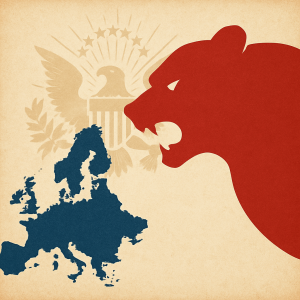What does he want? What is his goal? Why did Vladimir Putin amass some hundred thousand of his soldiers along the Ukrainian border and why did he at the same time encourage the Belarussian president to organise the arrival of migrants to Minsk, migrants who had been lured by the possibility of entering the European Union via the Polish border?
The question is now haunting Kiev, Washington and the 27 European capitals, which are preparing, like the NATO, for the hypothesis of a Russian military operation against Ukraine, which is both expecting and saying that it will be attacked next January. The tension is rising and in what looks furiously like the preliminary justification of a new Russian intervention on Ukrainian territory, Vladimir Putin denounces to the European Union the humiliations and denials of rights of which the Russian-speaking Ukrainians would be victims.
So, yes, how far does he intend to go?
Perhaps he just wants to keep the countries of the Atlantic Alliance permanently nervous and show them that he can do whatever he wants, or almost whatever he wants, in the former Soviet area without them being able to do much about it. It would be, as they say, “a great job”. It would only cost him the gasoline necessary for the tanks engaged in this gesticulation, which would in this case be much more political than military, but we cannot exclude that Mr Putin is testing the Western reactions before going further.
Perhaps he is considering, as a second hypothesis, creating a territorial continuity between annexed Crimea and Donbass, the eastern part of Ukraine where secessionists are calling the shots thanks to the arms and financial support that the Kremlin has been providing them for seven years. The Russian president would then detach from Ukraine an extended area which would become de facto Russian and which a new referendum, as in Crimea, could even integrate into the Russian Federation.
There is no certainty here but this possibility cannot be excluded because Vladimir Putin is aware that his popularity is declining and has certainly not forgotten the jump in the polls that the 2014 annexation allowed him to make. He may now be tempted to play this card again to make his population forget the constant decline in their standard of living, the mortifying incompetence with which the Covid crisis is being managed, the weariness caused by his two decades of a reign and the growing unease of the urban middle classes and of the wealthiest in the face of the tête-à-tête with China to which he is condemning Russia.
In what already looks like the beginning of the end of a reign, Vladimir Putin needs to polish up his image. An external adventure on the very borders of Russia could therefore seem to him as feasible as profitable, but when history repeats itself, as Marx said, it becomes a caricature. The Ukrainian army is no longer what it was at the time of the annexation of Crimea. Even against the Russian army, it can fight and resist long enough for a real war in the heart of Europe to cause unease all the way to Russia and end up being politically lost.
It is of course possible that Vladimir Putin is deluding himself about his chances of winning as quickly as he did in 2014, but there is a third possibility, the most worrying of all, which is that he is banking on the parallel opening of another front – no longer in Europe but in the China Sea because Mr Xi is getting impatient.
The Chinese president can see that the European Union and the United States are increasing their gestures of solidarity with Taiwan, that the American navy is cruising in the Formosa Strait and that all the Asian countries that are worried about China are moving closer and closer to the Americans, the Europeans or both sides of the Atlantic at the same time.
There is an evolution in the West on the Taiwan issue that reflects a desire to counter communist China by bringing democratic China out of its isolation. With Xi Jinping at the top, the Chinese leaders cannot let this happen without it being seen as an avowal of weakness in China and throughout Asia. Without even going as far as an invasion of the island, the Chinese president might want to assert his military power in the Formosa Strait, and both he and Vladimir Putin would only benefit from acting simultaneously.
With the US mid-term elections, the French presidential election the beginnings of the new German coalition, European and Asian tensions and the adoption by the Union of a “strategic compass” that will mark the first steps of its common defence, 2022 is not turning out to be a very calm year.



